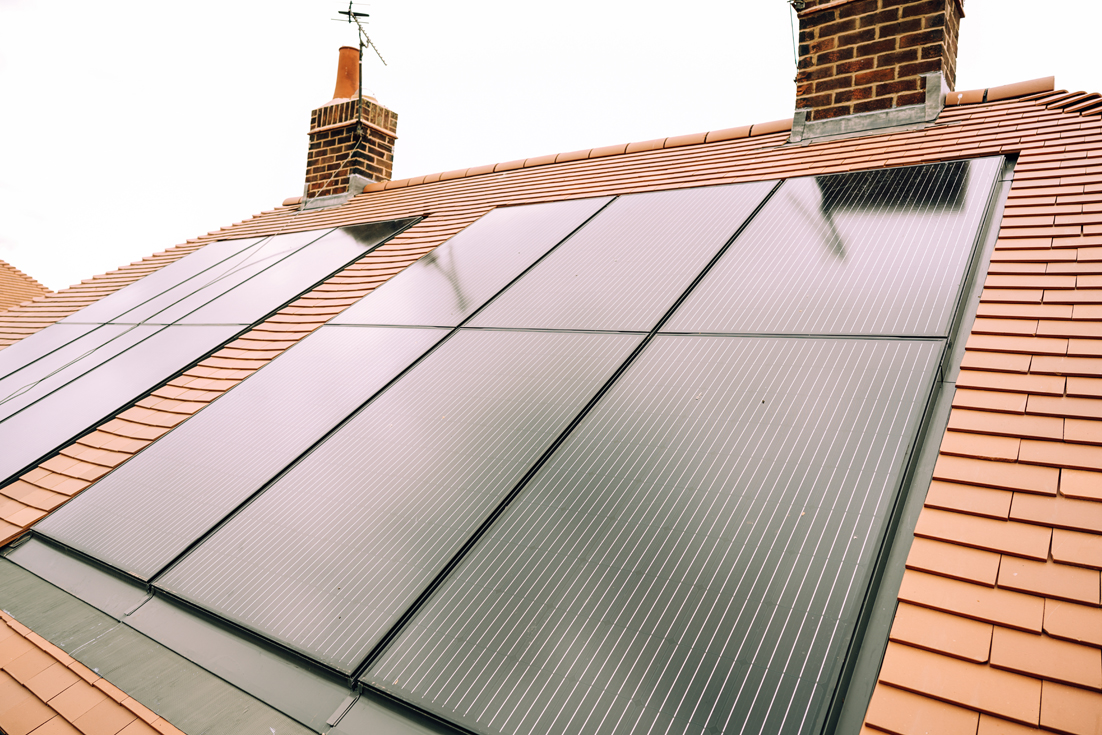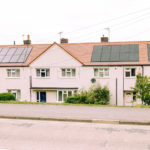Across a wide range of proven renewable technology solutions, to technical specifications and training support, Marley is working with local authorities to help deliver energy-efficient, sustainable social housing, which also reduces energy cost pressures for tenants. Here, Chris Marshall, Area Sales Manager at Marley outlines the benefits of a collaborative, single source strategy approach as the sector embarks on major retrofit and upgrade programmes.
The impact of the Social Housing Decarbonisation Fund (SHDF) has better enabled local authorities and housing providers to access funding for sustainable housing improvements, enhancing energy efficiency. With the recent release of the second wave of funding, an extra £80m supplements the initial £800m allocation aiming to create warmer, more efficient homes and alleviate tenants’ energy cost pressures. Yet against this backdrop, the proper system specifications are crucial for long-term success in meeting tenants’ needs.
The solar PV momentum
The growth of solar PV installations on UK rooftops is going from strength to strength. Government statistics from 2023 show that solar installations1 stand at over 1.35 million, with the period between 2022 and 2023 seeing the largest annual installation increase for seven years.
The escalating popularity of solar PV is down to several factors, including a reduction in the cost of solar PV systems over the past decade. From a regulatory perspective, solar PV on the roofscape, combined with an efficient gas boiler, is also the quickest and most cost-effective way for local authorities to meet the 31% carbon reduction targets introduced within Part L Building Regulations.
Alongside retrofit projects to improve the energy efficiency performance of existing social housing stock, the inclusion of solar PV when designing new social housing developments should be a central consideration.
The latest integrated PV roof systems — such as Marley’s SolarTile — offer a more visually appealing, cost-effective and easier to install option. Replacing a section of roof tiles, integrated solutions provide a sleek aesthetic and function as a seamless part of the overall roof aesthetic.
A wider renewable package
Local authorities are urged to take a holistic view when it comes to selecting the range of renewable technology solutions that will bring homes to an EPC C standard. The combination of solar PV on roofscapes, coupled with battery storage that can retain energy generated from a clean source, alongside installed EV charging that can use solar power generation to provide low-cost motoring, makes a compelling argument that can underpin sustainability objectives.
To further drive enhanced procurement efficiencies, opting for a single source strategy enables local authorities and housing associations to effectively use available budgets and funding from the Social Housing Decarbonisation Fund allocation.

Understanding the growing importance of renewable system solutions, Marley has built a wider renewable system, as well as technical support and training, which local authorities across the UK are already taking advantage of. The full marley renewable system offer already includes solar PV and EV charging and has been further strengthened with the introduction of easy to install battery storage and inverter solutions. They allow tenants to store the energy generated via solar PV on the roof,so they become less reliant on the grid.
As demand for renewable answers escalates, local authority specifiers can now collaborate with partners such as marley to devise a comprehensive renewables package to drive the improvements that will increase energy efficiency, while helping tenants reduce energy costs.
Specification and training support
Aside from product selection, marley is also supporting the sector in additional ways. an experienced technical team is on hand to guide and inform local authority specification decisions that can make a positive contribution to the all-important EPC ratings. The service will identify the best roof location for the solar PV system, design the most effective solar array and create detailed calculations that will ensure the roof installation delivers the desired power generation.
And for local authorities keen to ensure that the installation of new renewable technologies is always right first time, every time, marley’s extensive training support for in-house installer teams can be another value-added component as part of a wide-ranging, results-orientated collaboration. The company provides weekly one-day solar installation training courses offering a comprehensive overview of how solar PV works, how to set out a system and tips to consider when dealing with a complex array system.
In addition, marley’s Sustainability and Solar PV: pitched roofing specification cpd aims to drive a better understanding of the role played by solar. The CPD’s content provides local authority specifiers with a detailed overview of all aspects of solar PV; what to know and what to avoid. This includes how solar PV interacts with the rest of the designed roofing system and the compliance and sustainability advantages it delivers.
1. www.solarpowerportal.co.uk/government_figures_
For more details on Marley’s training support for solar PV installation, please visit www.marley.co.uk/renewable-solutions
Header image: Denbighshire Council properties with Marley’s solar PV installed on the roofs










